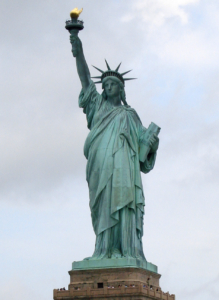Legal immigrants may become reluctant to seek government-sponsored health care and providers may find themselves delivering more uncompensated care in the wake of the adoption of a new federal “public charge” regulation that seeks to define more narrowly the kinds of individuals who should be granted entry to the U.S. in the future.
 The new Department of Homeland Security regulation, while focused on applicants for entry into the U.S., could have the unintended effect of discouraging legal immigrants from enrolling in Medicaid, CHIP, and other government programs and even lead them to disenroll from such programs out of a mistaken concern that participating in such programs could jeopardize their status as legal immigrants. The Kaiser Family Foundation, in fact, estimates that two to three million people will leave Medicaid and CHIP because of the new regulation.
The new Department of Homeland Security regulation, while focused on applicants for entry into the U.S., could have the unintended effect of discouraging legal immigrants from enrolling in Medicaid, CHIP, and other government programs and even lead them to disenroll from such programs out of a mistaken concern that participating in such programs could jeopardize their status as legal immigrants. The Kaiser Family Foundation, in fact, estimates that two to three million people will leave Medicaid and CHIP because of the new regulation.
More than a quarter of a million interested parties responded to the proposed regulation, which was published last October, and since its release last week a wide variety of groups, ranging from the American Hospital Association and America’s Essential Hospitals to the American Council of Pediatrics, have noted the new regulation’s potential impact with alarm. Hospitals, in particular, are concerned that if people disenroll from Medicaid and CHIP, they will end up providing more uncompensated care to patients who previously had health insurance through those two public programs.
This could be especially challenging for Pennsylvania safety-net hospitals that are located in communities with large numbers of low-income legal immigrants.
Learn more about the new public charge regulation and health care providers’ reaction to it in the Fierce Healthcare article “Healthcare industry groups warn final ‘public charge’ rule could impact immigrant health, drive up costs.”